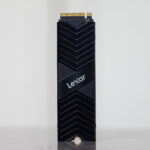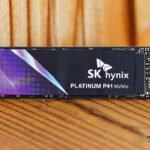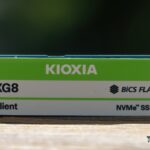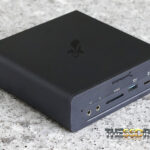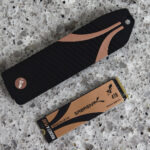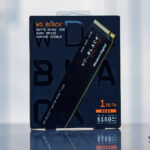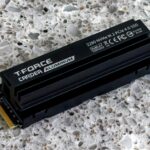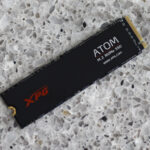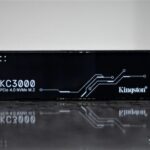Up on the Test Bench today we have the latest and greatest from Lexar, the Lexar Professional NM800 Pro NVMe SSD. This SSD has a very compact heatsink which makes it the perfect addition to a Sony Playstation 5 gaming system. Let’s add to that the fact that the makeup of this SSD isn’t your run of the mill copycat …
Read More »Search Results for: intel nvme ssd
SK hynix Platinum P41 SSD Review – Can Gen4 Get Any Better than This?
SK hynix is a South Korean company that was founded way back in 1949 as Gukdo Construction and renamed to Hyundai Electronics Industries in 1983 before acquiring LG Semiconductor in 1999. It changed its name to Hynix Semiconductor in 2001. Most haven’t a clue who they are or what they do. They are one of few true memory manufacturers in the …
Read More »KIOXIA XG8 Gen 4 2TB SSD Review – The Best in OEM Storage
A rather unfortunate and all too common thing we have seen throughout the years is substandard third party components within electronic equipment. A perfect example might be a storage device in a laptop where, most often, the SSD choice has been poorly thought out by the company. We have posted a lot of notebook and Ultrabook reviews throughout the years …
Read More »Sabrent Thunderbolt 3 Dual NVMe 8TB SSD Docking Station Review
One of the constants that has come to mind as a photographer over the years is finding perfect storage for my media. Admittedly, I still do something I don’t really approve of which is storing media on my system drive and this is only thanks to Sabrent and their choice to market 4/8TB drives for this purpose. I have also …
Read More »Sabrent Rocket 4 Plus SSD With PS5 Heatsink Review – They Switched to B47R Memory Without Telling a Soul!
Without a doubt, the loudest a reader can be in the SSD world is when a company dares to switch hardware in their SSDs without telling anyone. This goes back years and, well, few have escaped the wrath of online ridicule when they are caught doing such. I have always been the bad guy and still believe that manufacturers have …
Read More »WD_Black SN770 Gen 4 SSD Review – Don’t Let Its Good Looks Fool You.
There is a long standing belief that buying a DRAM-less SSD is just wrong. As much as this might hold water prior to and for those users not using Windows 10, it doesn’t for those looking for value and performance in storage today. Without getting too complicated, NVMe and Windows 10 allow the SSD to create a Host Memory Buffer …
Read More »TeamGroup T-Force Cardea A440 Pro Gen4 SSD Review – Top Speeds Great Value
Gen 4 SSDs have become common place as of late and manufacturers have elected to rely on the Phison E18 PCIe 4.0 NVMe controller, and for good reason. It is a top tier controller with performance that provides 7GB/s throughput and over 1 million IOPS and, most recently, we even identified an SSD with this controller as being a ‘game …
Read More »XPG Atom 50 Gen 4 NVMe SSD Review – A DRAM-less SSD Competes with the Best
An unexpected surprise arrived at our offices this Christmas break in the guise of a PCIe 4.0 DRAM-less SSD. It was only a matter of time but there has been some clever thought put into this drive. It is the ADATA XPG Atom 50 Gen 4 SSD and two things that stand out are that it is a single-sided SSD, …
Read More »Kingston KC3000 PCIe 4.0 NVME SSD Review – Did Kingston Just Release a ‘Game’ Changer?
One of the oldest names in SSDs is Kingston. One might not expect such as Kingston, by all sense of the term, is a third party manufacturer…or distributor. Unlike Samsung, WD/SanDisk, Intel, Kioxia, Micron, SKHynix and a few others, they do not actually own a fab that ‘grows’ the silicon ingots to manufacture NAND wafers. Unbelievably, the original Kingston SSDNow …
Read More »Silicon Power XD80 Gen 3 NVMe SSD Review – Is this the Ultimate Gen3 Gaming Solution?
On our test Bench today is the Silicon Power XD80 PCIe 3.0 NVMe M.2 SSD. It is a 2TB capacity and claims to bring us top Gen 3 speeds with a lower price point and at lower temperatures, 20% lower actually. The XD80 comes with its own metal heatsink attached, something we really never saw with many Gen 3 SSDs. …
Read More » The SSD Review The Worlds Dedicated SSD Education and Review Resource |
The SSD Review The Worlds Dedicated SSD Education and Review Resource |

